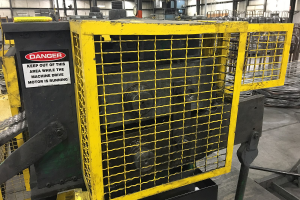Companies should be wary of OSHA’s Corporate-Wide Settlement Agreements
OSHA is stepping up its use of Corporate-Wide Settlement Agreements in an effort to make more efficient use of its compliance resources, but companies should think carefully before signing off on such an agreement.
Under a CSA, companies that have been cited can agree to correct similar issues at all of their locations. But companies must be careful because failure to follow the terms of the Corporate Wide Settlement Agreement can create even greater liability.
“OSHA has made limited use of CSAs in recent years,” said OSHA Assistant Secretary David Michaels. “However, we believe that the revised directive will be an effective tool to secure worker safety and health protections. Through an employer’s formal agreement to abate serious hazards at multiple facilities, CSAs are an improvement over traditional enforcement measures that could take much longer.”
OSHA has recently issued a new directive regarding Corporate-Wide Settlement agreements that are both national and regional in scope. The directive states that CSAs may “go beyond the subject of the citations/violations to include additional safety and health program enhancements” that were not the reason for the original inspection or citations/violations.
One of the problems for companies with numerous locations is that it can be extremely challenging to monitor performance under the agreement at all of its locations. If OSHA determines non-compliance with issues identified in the CSA, the consequences for the corporation can be significant (Failure-to-abate Notices, repeat or willful violations).
In my opinion, corporations need to examine these agreements very carefully and should seek significant concessions from OSHA in exchange for signing.
Agreements are now required to include a termination date no more than two years from the settlement date. OSHA posts Corporate-Wide Settlement Agreements on its Web site.



2 Comments
Jim,
I agree. As the former corporate safety director for a fortune 500 company, OSHA was chomping at the bit to get a corporate settlement agreement when they could. However, we always worked around those, knowing what their ultimate plan was. Not all of the facilities were at the same level of compliance (some great, some not so great), so we would have been set up for failure if we entered into such an agreement.
It is wise to examine any such agreement thoroughly before signing it. This is especially true if you have a large company with multiple locations.